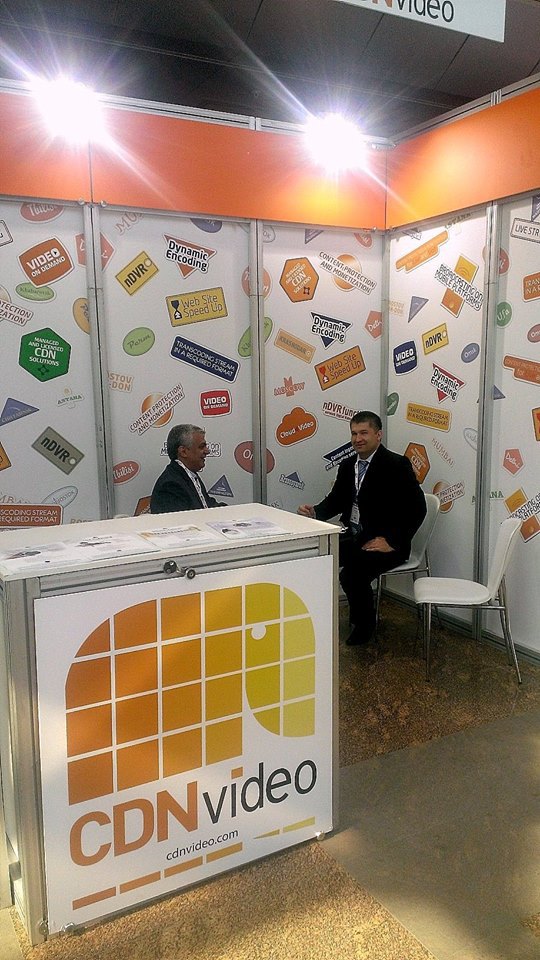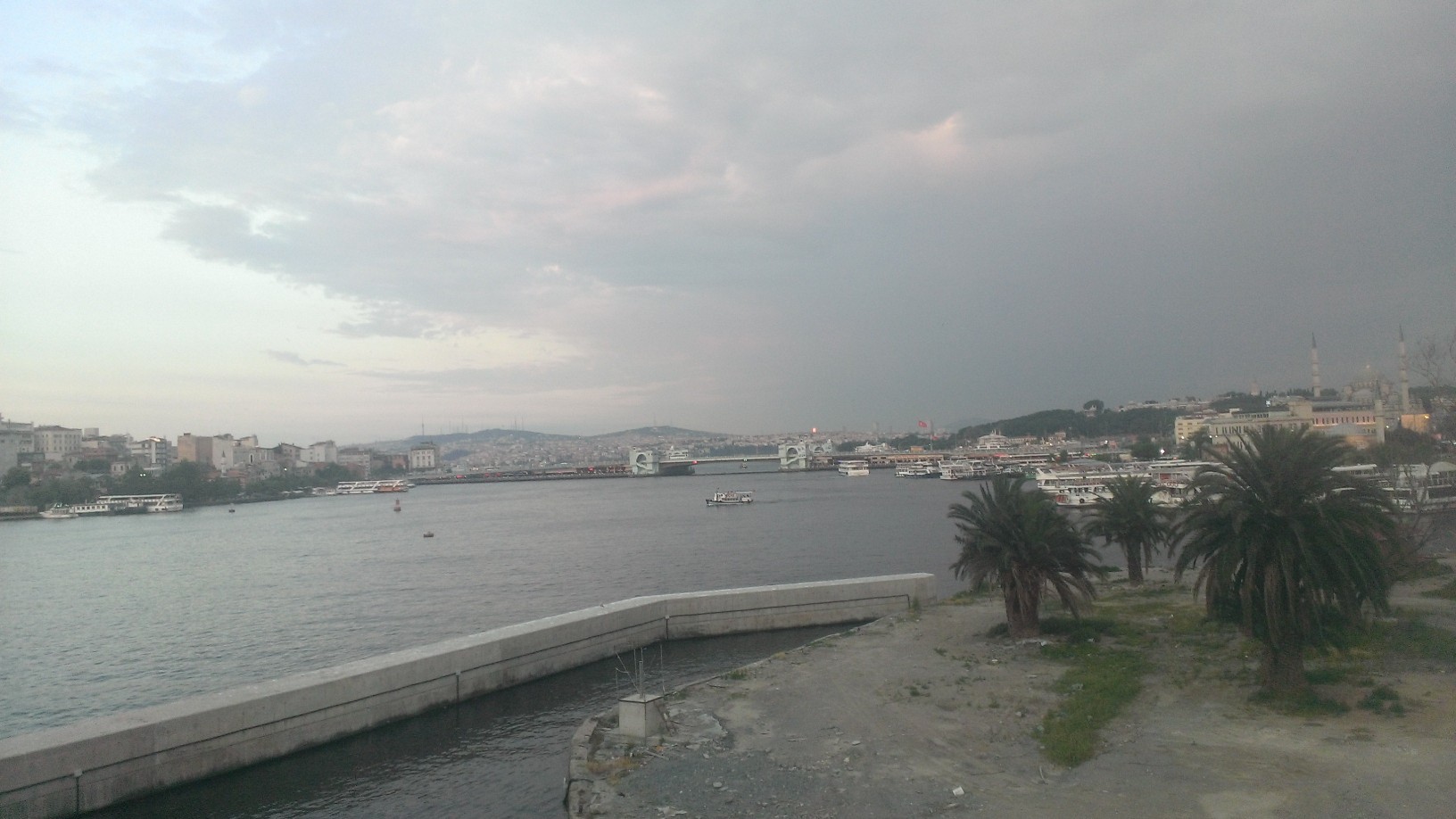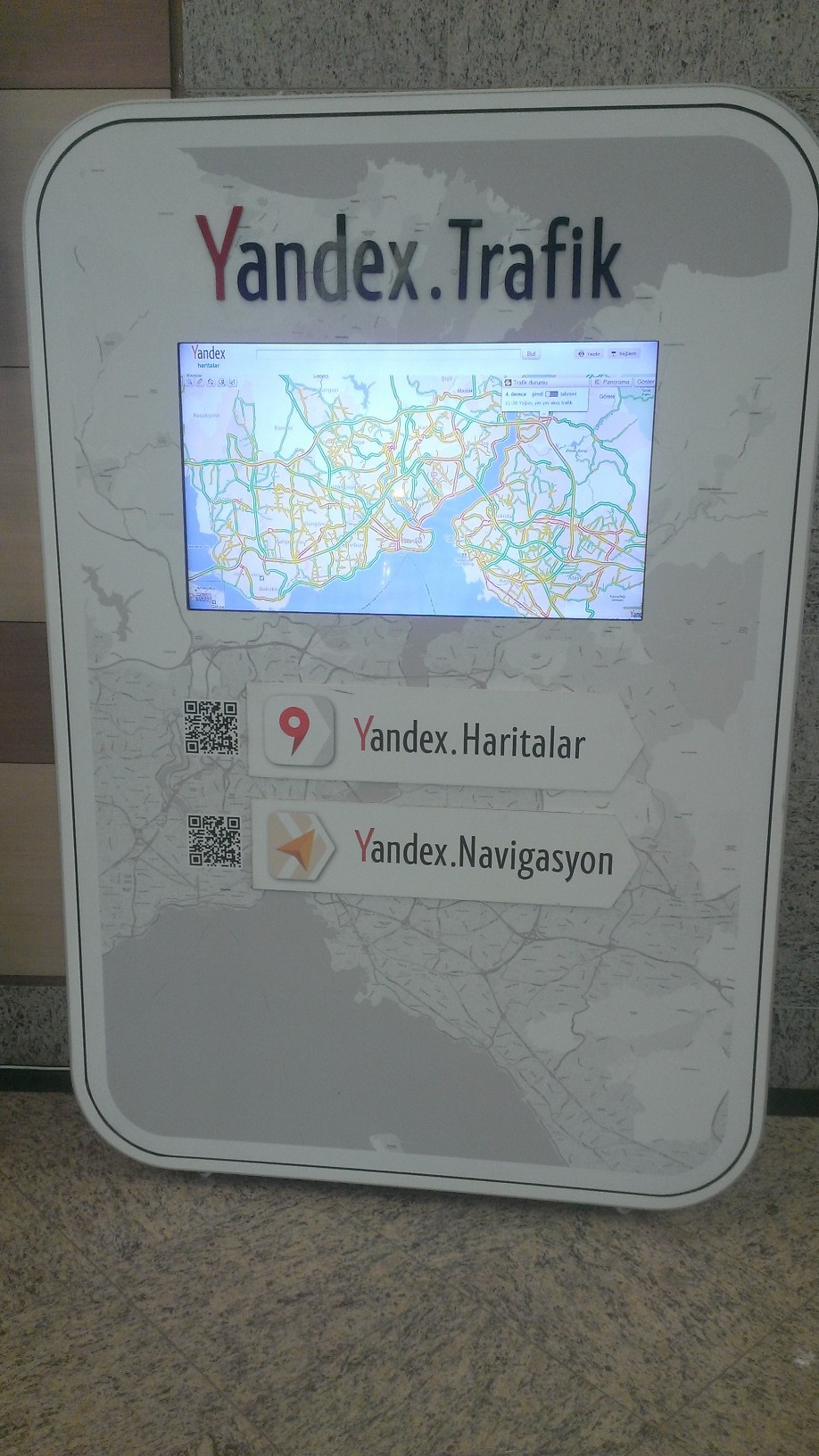Turkey as a market for Russian high-tech companies
Turkey is in many respects similar to Russia: the population of Turkey is only 2 times less than in Russia, the GDP per capita and the level of Internet penetration practically coincide, the mentality is similar (both countries consider themselves to be the heirs of the Byzantine Empire). Therefore, last week we, i.e. The company CDNvideo , decided to go on exploration in Istanbul to assess the feasibility of entering the Turkish market. The exhibition and conference iTVF was chosen as the springboard, which, according to its organizers, is the largest event of the Turkish television community.

')
To visit this exhibition iTVF, people from all countries with strong Turkish influence came to Istanbul - there were representatives of many Arab and Balkan countries, the former Central Asian republics of the USSR, Azerbaijan, Iran and even distant Malaysia. It seems that the Turkish colleagues are not too exaggerated when they say that Istanbul is the key to the markets of North Africa and the Middle East. We spoke at the conference, placed a booth at the exhibition and talked with representatives of several dozen companies interested in our online video broadcasting services via CDN .

However, the exhibition did not hit. Moscow exhibitions on the same subject - NAT Expo and CSTB - are more in terms of membership and quantity. stands. But the exhibition was held only for the second time, it is actively sponsored and promoted by the local government, so it is likely that it will grow into something more ambitious. Good, and the pleasant weather, and the location on the shore of the Golden Horn Bay will contribute to the influx of visitors.

From the information on the Turkish near-television market, which we managed to learn, the following is interesting. Turks are avid TV viewers: out of the $ 3.5 billion of the entire advertising market of Turkey, television advertising is 2.8 billion, i.e. 80% (for comparison, in Russia - only about 50%, and in the West even less). Parallel television watching and the use of smartphones are also not in use here, all the attention of viewers is focused on the TV. Therefore, local market leaders believe that while television should become interactive, the 2nd screen concept in Turkey does not take root, and therefore content management should take place on television (in the West, many television channels have the opposite opinion and launch applications for smartphones with which you can control what is happening on TV).
On the basis of 5 days of intensive communication, I drew for myself the conclusion that although Turkey is approximately at the level of Russia in terms of the general level of development, Turkish companies are significantly lagging behind companies from our country in terms of IT technology. “There is nothing new under the Sun” - this quote from the Bible is loved in Turkey, and perhaps that’s why there are no homegrown Internet giants here. Of the 10 most popular sites in Turkey, only 3 are Turkish (2 media sites and 1 e-commerce platform), 6 US and 1 Russian (Yandex). By the way, among the “alleys of innovation” at the exhibition iTVF were mainly representatives of Russia. So, Russian IT companies may well occupy free niches in the Turkish market.
However, all the Turks with whom we were able to communicate, they say that selling directly from Russia to Turkey is almost impossible. In the Turkish market, it is not “know how” that is important, but “know who” - that is, in other words, a local partner with good connections is hardly enough, especially if you work in the B2B sector. In addition, for the most part, Turks in general and Turkish IT engineers in particular do not speak English well, which practically excludes the possibility of any kind of communication with them on professional topics. And, frankly, there is a certain prejudice against Russian companies, the Turks are used to buying IT technologies in the USA and Western Europe. So in order to work successfully in the Turkish market, Russian companies need to localize as much as possible, as Yandex did.


')
To visit this exhibition iTVF, people from all countries with strong Turkish influence came to Istanbul - there were representatives of many Arab and Balkan countries, the former Central Asian republics of the USSR, Azerbaijan, Iran and even distant Malaysia. It seems that the Turkish colleagues are not too exaggerated when they say that Istanbul is the key to the markets of North Africa and the Middle East. We spoke at the conference, placed a booth at the exhibition and talked with representatives of several dozen companies interested in our online video broadcasting services via CDN .

However, the exhibition did not hit. Moscow exhibitions on the same subject - NAT Expo and CSTB - are more in terms of membership and quantity. stands. But the exhibition was held only for the second time, it is actively sponsored and promoted by the local government, so it is likely that it will grow into something more ambitious. Good, and the pleasant weather, and the location on the shore of the Golden Horn Bay will contribute to the influx of visitors.

From the information on the Turkish near-television market, which we managed to learn, the following is interesting. Turks are avid TV viewers: out of the $ 3.5 billion of the entire advertising market of Turkey, television advertising is 2.8 billion, i.e. 80% (for comparison, in Russia - only about 50%, and in the West even less). Parallel television watching and the use of smartphones are also not in use here, all the attention of viewers is focused on the TV. Therefore, local market leaders believe that while television should become interactive, the 2nd screen concept in Turkey does not take root, and therefore content management should take place on television (in the West, many television channels have the opposite opinion and launch applications for smartphones with which you can control what is happening on TV).
On the basis of 5 days of intensive communication, I drew for myself the conclusion that although Turkey is approximately at the level of Russia in terms of the general level of development, Turkish companies are significantly lagging behind companies from our country in terms of IT technology. “There is nothing new under the Sun” - this quote from the Bible is loved in Turkey, and perhaps that’s why there are no homegrown Internet giants here. Of the 10 most popular sites in Turkey, only 3 are Turkish (2 media sites and 1 e-commerce platform), 6 US and 1 Russian (Yandex). By the way, among the “alleys of innovation” at the exhibition iTVF were mainly representatives of Russia. So, Russian IT companies may well occupy free niches in the Turkish market.
However, all the Turks with whom we were able to communicate, they say that selling directly from Russia to Turkey is almost impossible. In the Turkish market, it is not “know how” that is important, but “know who” - that is, in other words, a local partner with good connections is hardly enough, especially if you work in the B2B sector. In addition, for the most part, Turks in general and Turkish IT engineers in particular do not speak English well, which practically excludes the possibility of any kind of communication with them on professional topics. And, frankly, there is a certain prejudice against Russian companies, the Turks are used to buying IT technologies in the USA and Western Europe. So in order to work successfully in the Turkish market, Russian companies need to localize as much as possible, as Yandex did.

Source: https://habr.com/ru/post/226921/
All Articles